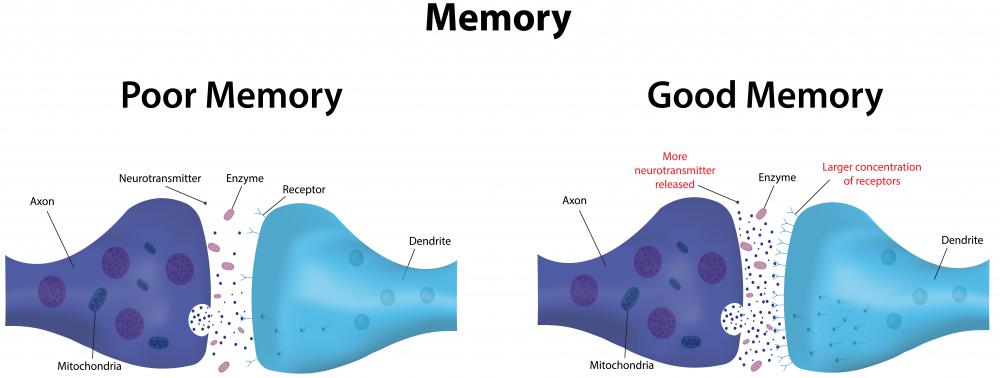At WiseGEEK, we're committed to delivering accurate, trustworthy information. Our expert-authored content is rigorously fact-checked and sourced from credible authorities. Discover how we uphold the highest standards in providing you with reliable knowledge.
What are Adrenergic Receptors?
Adrenergic receptors are proteins which are sensitized to particular chemical compounds. Certain types of cells contain these proteins along with others to enable cellular signaling, in which cells communicate with each other through the use of chemical signals. These proteins are most sensitive to norepinephrine and epinephrine, two neurotransmitters involved in the function of the sympathetic nervous system. The famous “fight or flight syndrome” experienced by people under stress is mediated by the adrenergic receptors. These proteins can stimulate a number of responses which trigger muscle contractions, are involved in certain secretions, and modulate blood pressure.
There are two main types of adrenergic receptor: alpha and beta. A number of lesser subtypes also exist, with each being responsible for particular types of responses, and sensitized to specific neurotransmitters. Some chemical compounds act as agonists, stimulating the adrenergic receptors, while others act as antagonists, blocking the action of these proteins. These compounds can be produced by the body as part of a response to a situation, and they can also be introduced accidentally or deliberately by ingesting certain substances.

Some examples of physical responses which can involve the adrenergic receptors include: contraction of the body's smooth muscle; contraction of the heart muscle; dilation and constriction of blood vessels; inhibition of secretions such as saliva, insulin, and histamines; and promotion of increased body secretions. When someone's heart starts pounding and the blood pressure starts rising during stress, this is in part due to the actions of adrenergic receptors in the body.

Researchers have studied adrenergic receptors to learn more about what they do and where in the body they can be found. This research is used to better understand the functioning of the body, and to develop pharmaceuticals which can target specific receptors to achieve a desired effect. For example, vasoconstrictors and vasodilators can be designed with substances which will interact with adrenergic receptors which promote constriction or expansion of the blood vessels.
These specialized proteins are also known as adrenoreceptors. They are one among a large family of proteins found in the cell membrane which are sensitized to particular classes of chemical compounds. On a daily basis, these proteins are constantly active, as part of the larger system which keeps the body running smoothly; the communications between millions of cells in the body do everything from stimulating the digestive system into contracting to push food along its way to telling the heart when to beat.
AS FEATURED ON:
AS FEATURED ON:












Discussion Comments
@Azuza - The racing heart and shaking hands you're describing are part of the "fight or flight syndrome" too! That's not surprising because fight or flight is affected by adrenergic receptors. It's kind of funny how medications sometimes bring on other side effects in the body as well as help alleviate the original problem.
I have asthma and I was learned recently that the rescue inhaler I use is a short-acting beta adrenergic receptor agonist. They treat the asthma attack by causing smooth muscle relaxation, which I think comes from its affect on the receptors. This stops the bronchial spasms that make it so difficult to breathe.
The inhaler works great, but I really hate the side effects. The asthma attack goes away but then I end up with a racing heart and shaky hands for awhile afterwards. I guess it's a small price to pay to breathe!
Post your comments